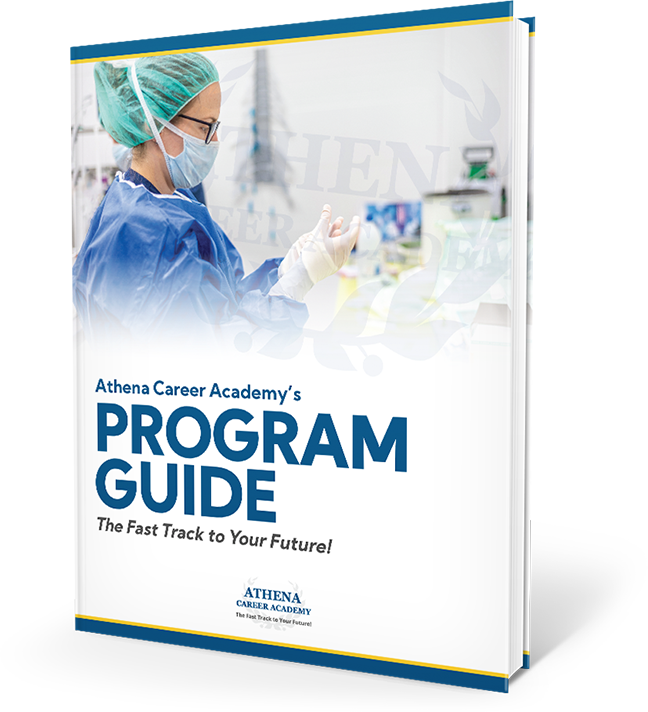Key Skills for Success in Medical Assistant Training
Posted On Mar 20, 2024
Medical assistants are vital in healthcare, supporting physicians, nurses, and other healthcare professionals. Their responsibilities often span clinical and administrative tasks, requiring a diverse skill set and a strong foundation of knowledge. For aspiring medical assistants, embarking on training is the first step towards acquiring these essential skills that are instrumental in building a successful career in healthcare.

Medical assistant training programs are designed to equip students with the necessary skills and knowledge to excel in their roles. These programs cover a broad spectrum of competencies, from clinical procedures to administrative tasks and interpersonal communication. Below are some critical skills students can expect to acquire during their medical assistant training and how these skills pave the way for a rewarding healthcare career.
Clinical Skills:
Clinical skills form the backbone of a medical assistant's role, as they involve direct patient care and assistance during medical procedures. Students undergo rigorous training to develop proficiency in various clinical tasks, ensuring they can provide high-quality service while supervised by licensed healthcare professionals. Here are some essential clinical skills emphasized during medical assistant training:
- Vital Signs Measurement: Medical assistants are trained to accurately measure vital signs like blood pressure, temperature, pulse rate, and respiratory rate. Mastery of these skills enables them to assess patients' overall health status and detect any abnormalities that may require further attention.
- Phlebotomy: Medical assistants share the responsibility of drawing blood samples for laboratory testing. Training programs include hands-on practice in phlebotomy techniques, emphasizing proper venipuncture procedures, specimen handling, and infection control protocols.
- Patient Examination and Assistance: Medical assistants assist healthcare providers during patient examinations, helping with patient positioning, preparing examination rooms, and obtaining medical histories. Training encompasses techniques for maintaining patient comfort, confidentiality, and dignity throughout the examination process.
- Basic Laboratory Procedures: Familiarity with basic laboratory procedures, including specimen collection, processing, and performing routine urinalysis and hematology tests, is essential for medical assistants. Training covers safety protocols, equipment handling, and documentation practices related to laboratory procedures.
Administrative Skills:
In addition to clinical duties, medical assistants often handle various administrative tasks that are crucial for the efficient operation of healthcare facilities. Training programs equip students with the organizational and clerical skills necessary to fulfill these responsibilities effectively.
Some essential administrative skills taught during medical assistant training include:
- Medical Office Procedures: Medical assistants learn about medical office workflows, appointment scheduling, electronic health records (EHR) management, and insurance billing procedures. Proficiency in these areas ensures smooth day-to-day operations and facilitates accurate patient information documentation.
- Billing and Coding: Medical billing and coding principles are essential for medical assistants to process insurance claims and maintain financial records. Training covers coding systems such as ICD-10 and CPT and insurance verification procedures to ensure timely reimbursement for healthcare services.
- Health Information Privacy (HIPAA): Medical assistants undergo training on HIPAA regulations to safeguard patient confidentiality and privacy rights. They learn about the secure handling of medical records, consent procedures, and maintaining confidentiality in all interactions with patients and healthcare providers.
Communication and Interpersonal Skills:
Strong communication skills are fundamental to success in healthcare, and medical assistants are essential in fostering effective communication among patients, healthcare providers, and fellow staff members. Training programs focus on honing the interpersonal skills necessary to build rapport with patients and foster a collaborative work environment. Key aspects of communication training for medical assistants include:
- Patient Interaction: Medical assistants learn to communicate effectively with patients from diverse backgrounds, demonstrating empathy, active listening, and clear verbal and nonverbal communication. Building patient trust is crucial for providing compassionate care and addressing their concerns.
- Team Collaboration: In healthcare settings, medical assistants work with physicians, nurses, and other healthcare professionals, serving as vital members of the healthcare team. Training emphasizes teamwork, professionalism, and effective communication strategies for coordinating patient care and ensuring seamless collaboration among team members.
- Conflict Resolution: Medical assistants may encounter conflicts among patients, colleagues, or other stakeholders. Training programs include instruction on conflict resolution techniques, such as active listening, mediation, and problem-solving, to address conflicts constructively and maintain a positive work environment.

Choose Diverse Medical Assistant Training
Medical assistant training equips students with a diverse skill set encompassing clinical, administrative, and interpersonal competencies essential for success in the healthcare industry. By becoming proficient in clinical procedures, administrative duties, and effective communication methods, medical assistants become instrumental in providing top-notch patient care and maintaining the smooth operation of healthcare facilities.
Aspiring medical assistants who undergo comprehensive training can anticipate rewarding careers where they contribute significantly to enhancing the health and welfare of others. The skills acquired during medical assistant training prepare individuals for their roles and lay the foundation for long-term success and advancement in the dynamic healthcare field.
Why Choose Athena Career Academy?
Athena Career Academy prioritizes hands-on learning experiences, ensuring you gain practical expertise in vital areas such as patient care, medical office procedures, and communication techniques. As you become a skilled medical assistant, consider Athena Career Academy as your partner in achieving your career goals.
With a focus on excellence and innovation, Athena Career Academy is committed to empowering aspiring medical assistants like you to thrive in an ever-evolving healthcare landscape. Experience a rewarding career by joining Athena Career Academy today. Together, we'll help you build the skills and confidence you need to make a meaningful impact in the lives of patients and communities. Discover your potential with Athena Career Academy. Enroll now and get ready to go on a fulfilling journey toward a brighter future in healthcare.
Recent Posts
- How Accessibility to Faculty Enhances ECE Degree Program
- Early Childhood Education Courses Lead to Great Teaching Careers
- Insights for Effective Preschool Teaching
- Online vs. In-Person Medical Assistant Training: Which Is Right for You?
- Preschool Teachers Provide Hands-On Learning for Future Innovators
Categories
- Flexible Class Schedule
- Early Childhood Education
- Clinical Medical Assistant
- Medical Assistant
- Accredited
- Medical Assistant Program Toledo, OH.
- MA Program
- ECE
- preschool teacher
- CMA
- Administrative Medical Assistant
- Practical Nursing
- Nursing School
- Nursing
- Early Childhood Education Degree
- LPN to RN
- Certified Medical Assistant
- Early Childhood Educator
- Become a Teacher
- Nursing Career
- RN
- Childcare Teacher
- Nursing School Toledo
- Practical Nurses
- Childcare Director
- Nursing Education
- Registered Nurse
- LPN
- Toledo Ohio Nursing School
- Teaching Degree
- Become a Nurse in 12 Months
- Nursing Career Opportunities
- Nursing School Preparation
- Practical Nursing Jobs
- Medical Coding and Billing
- DayCare Teacher
- Nursing Salaries
- Nursing School Costs
- PN to RN
- Career Training
- Nursing School Tuition
- Nursing School Financial Aid
- Phlebotomist Technician
- Practical Nurse Salaries
- EKG Technician
- nurse burnout
- #nursesunite
- Insider
- Phlebotomy Technician Salary
- Uncategorized
- resume
Contact us
For News, Resources, and Conversations:
Get your FREE 2022 Athena Career Academy Program Guide
The best way to get to know Athena Career Academy is to see what we offer. Download our program guide to learn more. Take the fast track to your future today!
An exciting career can be yours in just one year!
Discover how Athena Career Academy can help you reach your medical career goals fast.
Accrediting Agencies
Athena Career Academy is accredited by the Commission of the Council on Occupational Education. The school is registered with the Ohio Board of Career Colleges and Schools; State of Ohio – School Registration Number – 10-09-1943T and operates under the authority of the Ohio Board of Nursing. Please contact the Student Operations Manager for more information.


